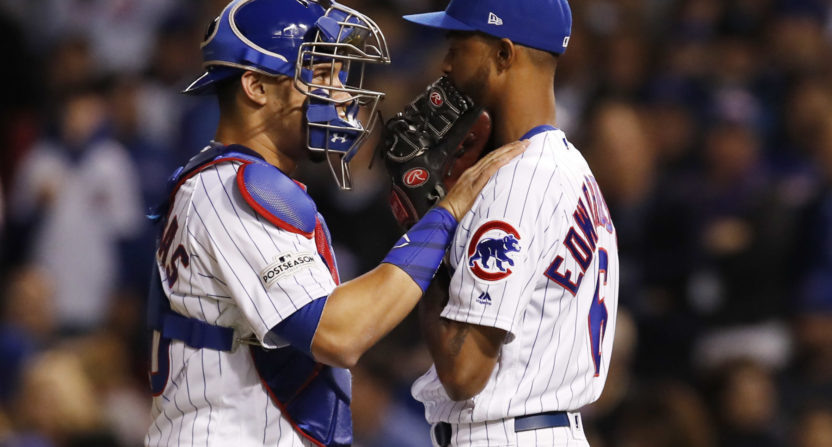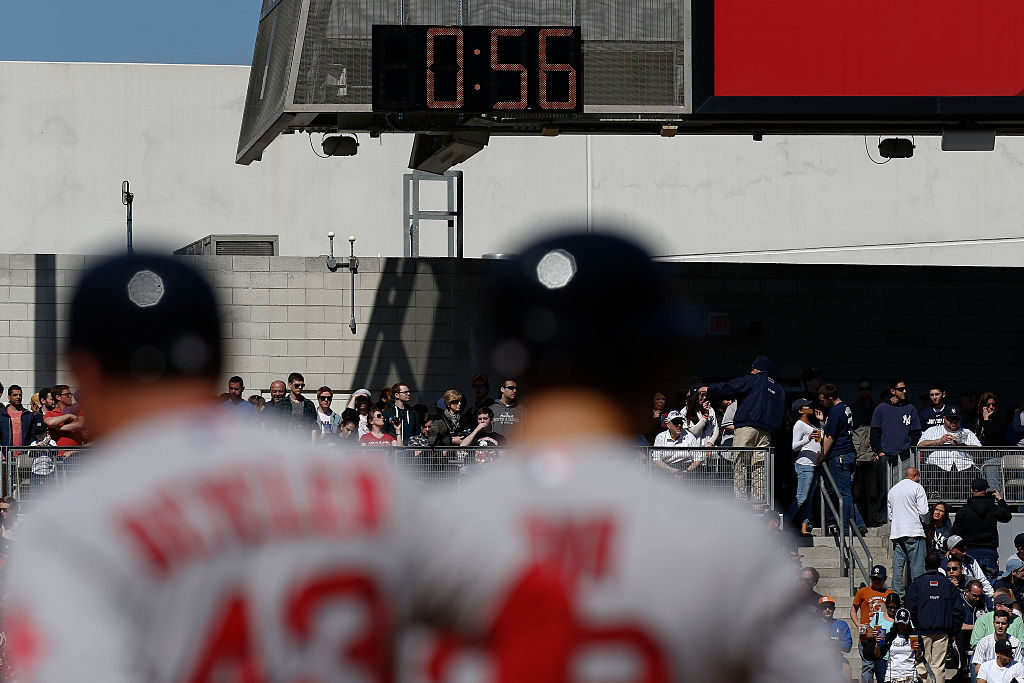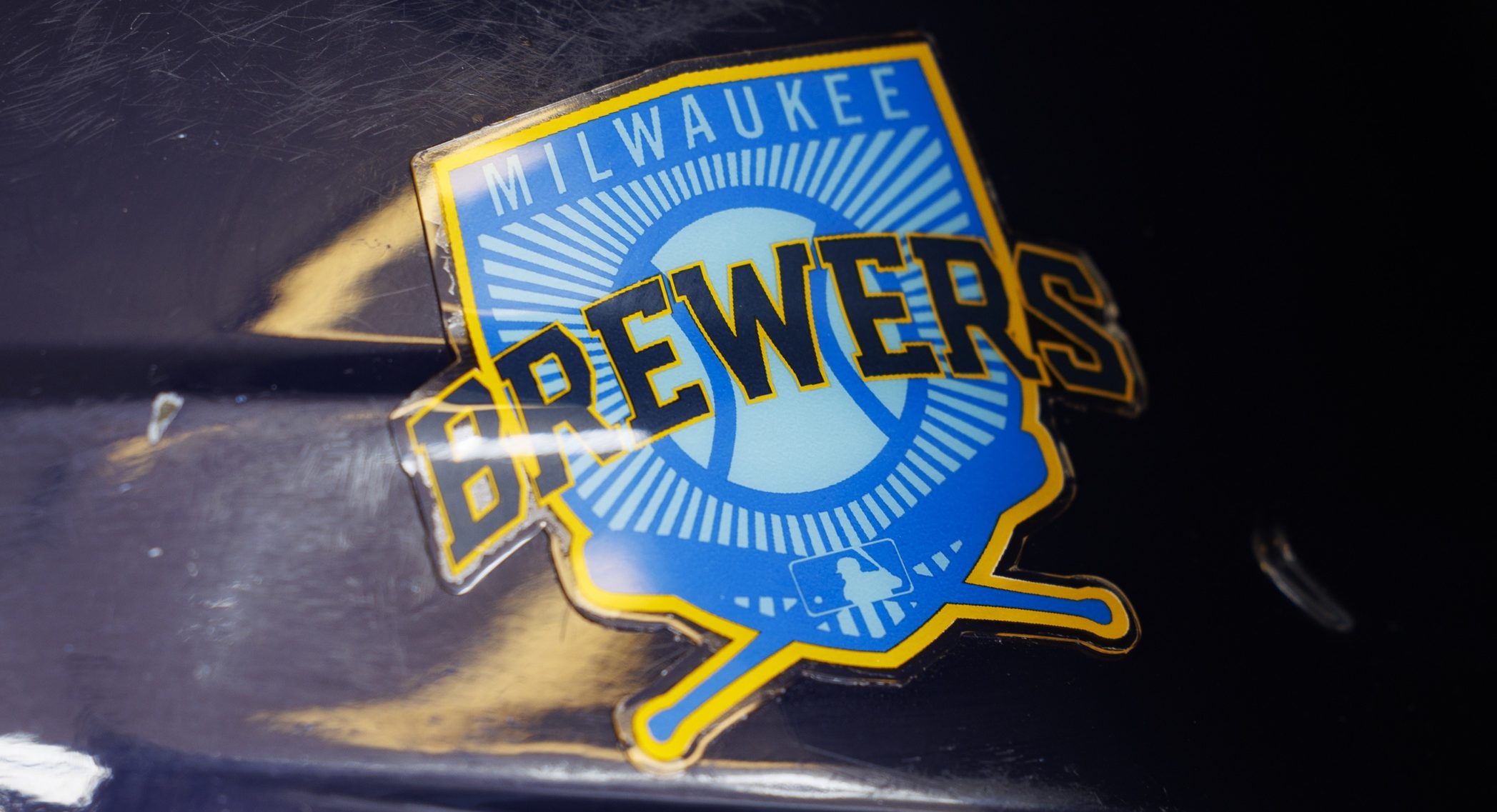Last week, Yahoo Sports’ Jeff Passan reported that the Major League Baseball Players Association planned to reject a league proposal that would have instituted a pitch clock with the bases empty and also put a strict cap on catchers’ visits to the mound. Once again, MLB had run into a roadblock in its years-long quest to shorten games.
But the MLBPA’s disapproval doesn’t mean the league’s reforms won’t come to pass. The sides will continue to negotiate, and MLB could eventually decide to enact the changes unilaterally. The question remains, will such changes accomplish their goals? And will those goals actually make baseball better?
We asked our writers those very questions. Here are their responses:
Ian Casselberry: I think a pitch clock is inevitable and MLB players might as well get used to the idea. The 20-second clock covers the same time period that most pitchers take to throw anyway, even if they won’t like a stopwatch ticking over their shoulders.
I also feel like the clock could create the perception that the game is moving faster, whether it actually is or not, by giving fans something to keep track of during the game, keeping them more engaged and adding a bit of drama. (Fans possibly chanting the final seconds to taunt an opposing pitcher could be annoying, but football fans don’t do that for a play clock nor do basketball fans generally do so for a shot clock, so we’re probably safe there.)
The limit on mound visits (by catcher, manager, or the pitcher stepping off the mound for a meeting) is more problematic, since they’re often dictated by game situations (runners on base, sign stealing, later high-leverage innings, batters on deck, etc.). If a new rule requires a pitcher to leave the game after a second mound visit, that seems extremely punitive.
Would such restrictions be inviting pitchers to fake injury to get another mound visit, for instance? That could end up actually lengthening games as teams tried to subvert the intention of the rule, and punish managers for something that should be a part of in-game strategy, regardless of how much time it adds to the game.
Alex Putterman: I generally like the idea of a pitch clock (because player would get used to it) and a limit on mound visits (because did you watch the postseason?), but I think MLB’s proposals take those concepts a little too far. Different versions of the suggested changes have called for pitch clocks of 18 or 20 seconds, which wouldn’t only force the game’s slowest pitchers to speed up but would alter the routines of just about every Major Leaguer. And MLB’s aspiration to treat catcher visits to the mound as it treats coach visits (one per inning, with the second requiring a change) is over-ambitious. Sometimes catchers really do need to chat with the pitcher. The problem becomes when they do so before every pitch.
All in all, I’m glad MLB is pushing for reforms, but I think if they were slightly less aggressive with their asks, the players might be more cooperative and the game might be better served.
Jay Rigdon: The pitch clock has been coming for a while, and there’s no real reason it shouldn’t be in place; it seems as though it will only affect a minority of pitchers, and it’s a small price to pay for a more reasonable pace of play. Those seconds add up!
The mound visits, though, would change things quite a bit, and I think it’d be for the better. The playoffs, especially, would benefit; while it’s understandable the pitchers and catchers would want to be on the same page for the biggest moments of the year (often in the loudest environments), it makes for horrible viewing. And there’s something fun about having to deal with a loud stadium; there’s nothing wrong with limiting catcher visits. There’s no real downside, other than, perhaps, a slight benefit to the offensive team, which is something baseball has been trying to make happen for a while now anyway.
Matt Clapp: Personally, I don’t really care about the rules either way. It will in no way impact my interest in the game. Hell, there’s nothing I like more than a 5+ hour extra inning marathon.
But I realize that I’m a weirdo and the sport needs to find new ways to reach the casual fan and younger fans. So, I think the rule proposals are indeed in the best interest of the league, and the players will get used to the rules after awhile.
Andrew Bucholtz: I’m a bit disappointed that the strict limit on catcher mound visits wasn’t approved. I think that made a significant amount of sense; managers and coaches are already limited to one per inning without needing to pull the pitcher, and I think you can cut down on the number of times the catcher comes to talk to the pitcher without drastically affecting the game. There are still communication possibilities before the inning and between innings, and if it’s really necessary for the catcher to relay further information, that could even possibly be worked into signals. With that said, though, I don’t think this rule would necessarily have cut down time as much as MLB wants; it’s more of a minor tweak. But it could be a useful one.
On the pitch clocks, I’m not sure how I feel. There is an issue in how long it takes pitchers to deliver the next pitch, which SB Nation’s Grant Brisbee pointed out in an excellent article last year went from 32 minutes and 47 seconds for 146 inaction (pitch, throw back, pitch) pitches in a 1984 game (13.47 seconds on average between the release of the pitches) to 57 minutes and 41 seconds for 144 inaction pitches in a similar 2014 game (24.03 seconds on average). The extra 25 minutes there is a big deal in game length, even more than the increased commercial load in 2014 (nine extra minutes), and it’s time that MLB can theoretically reduce without hurting its bottom line. But, research from FiveThirtyEight’s Rob Arthur suggests that pitchers are actually benefiting from that increased time between pitches with boosted fastball velocity, so this isn’t a good for everyone. (It’s also worth pondering if feeling rushed to throw a pitch might result in more pitcher injuries).
The benefits of shorter games and possibly even more offense aren’t insignificant, and they could perhaps outweigh the drawbacks if it’s done right. But there are issues with putting a clock in baseball and how it changes the game’s feel. I’d have preferred if MLB just gave umpires instructions and authority to tell dawdling pitchers to speed up, as it might have accomplished the same thing in a more unobtrusive manner. If pitch clocks are eventually brought in despite the union opposition, I respect what the goal is, and maybe players will adapt and we’ll all grow used to them quickly. But I do have more concerns about the idea than I do with the mound visit limitations, and for now, I’m fine with pitch clocks staying out of the game. And maybe pitchers will speed up on their own thanks to this discussion, and get rid of the problem without the need for clocks.








